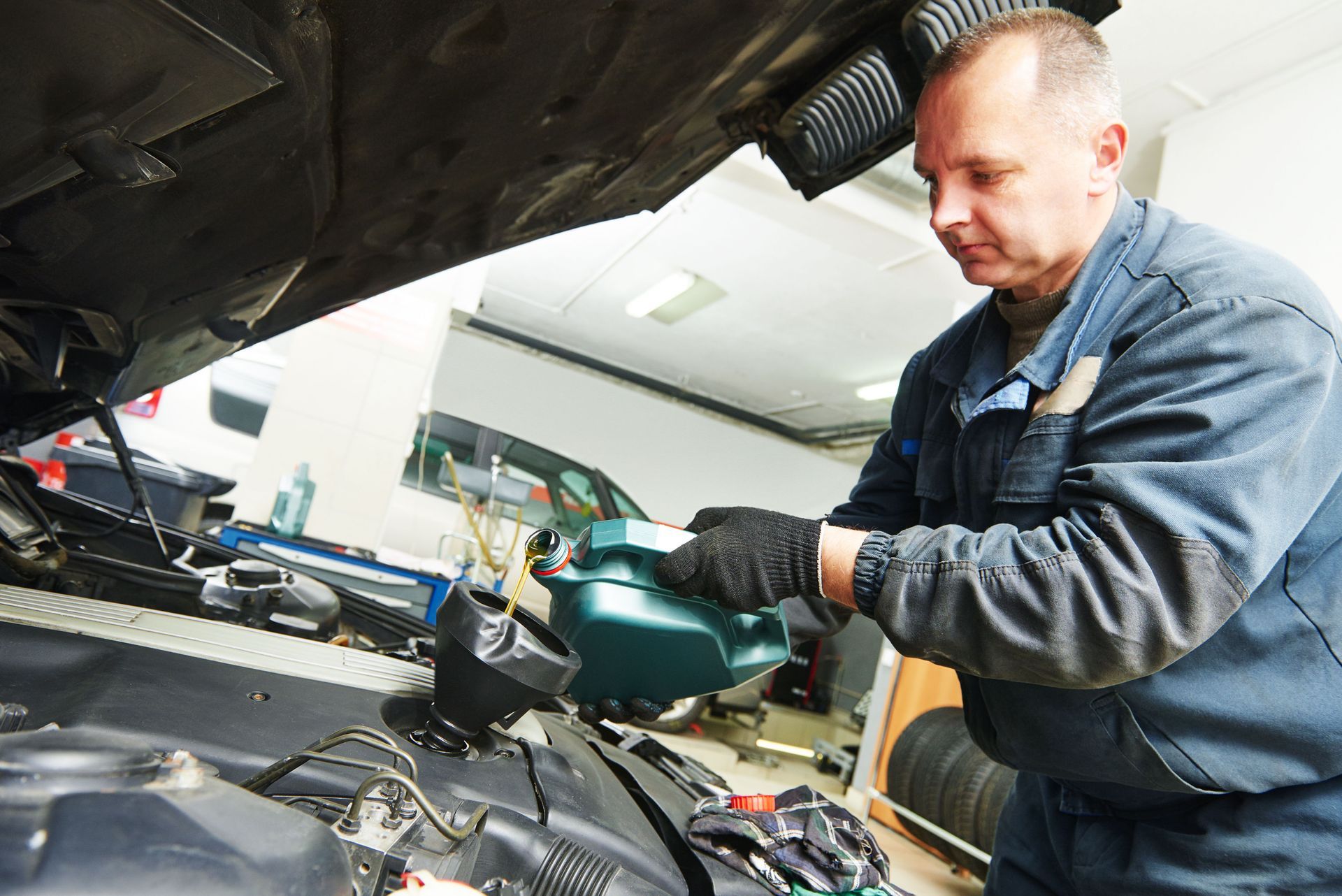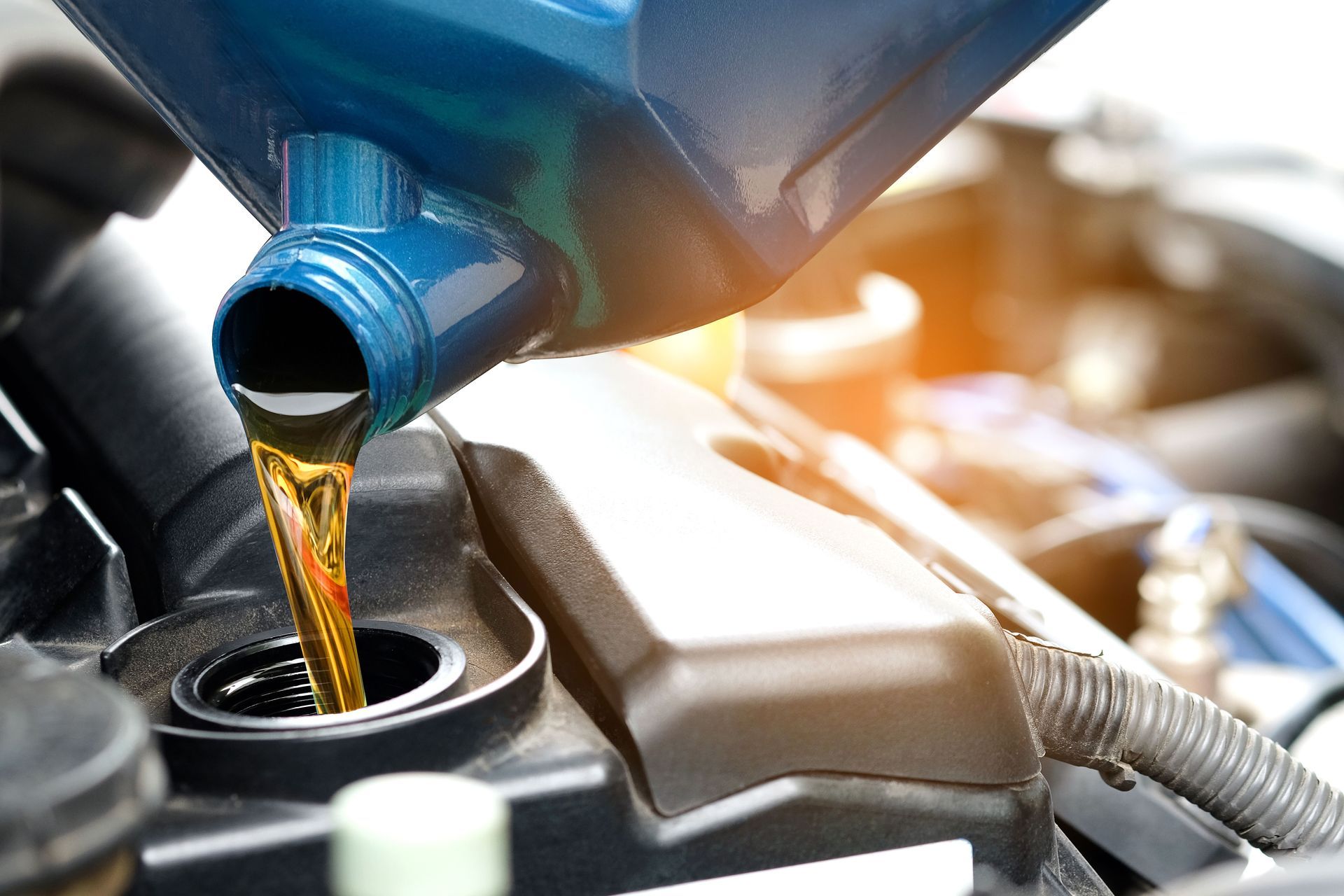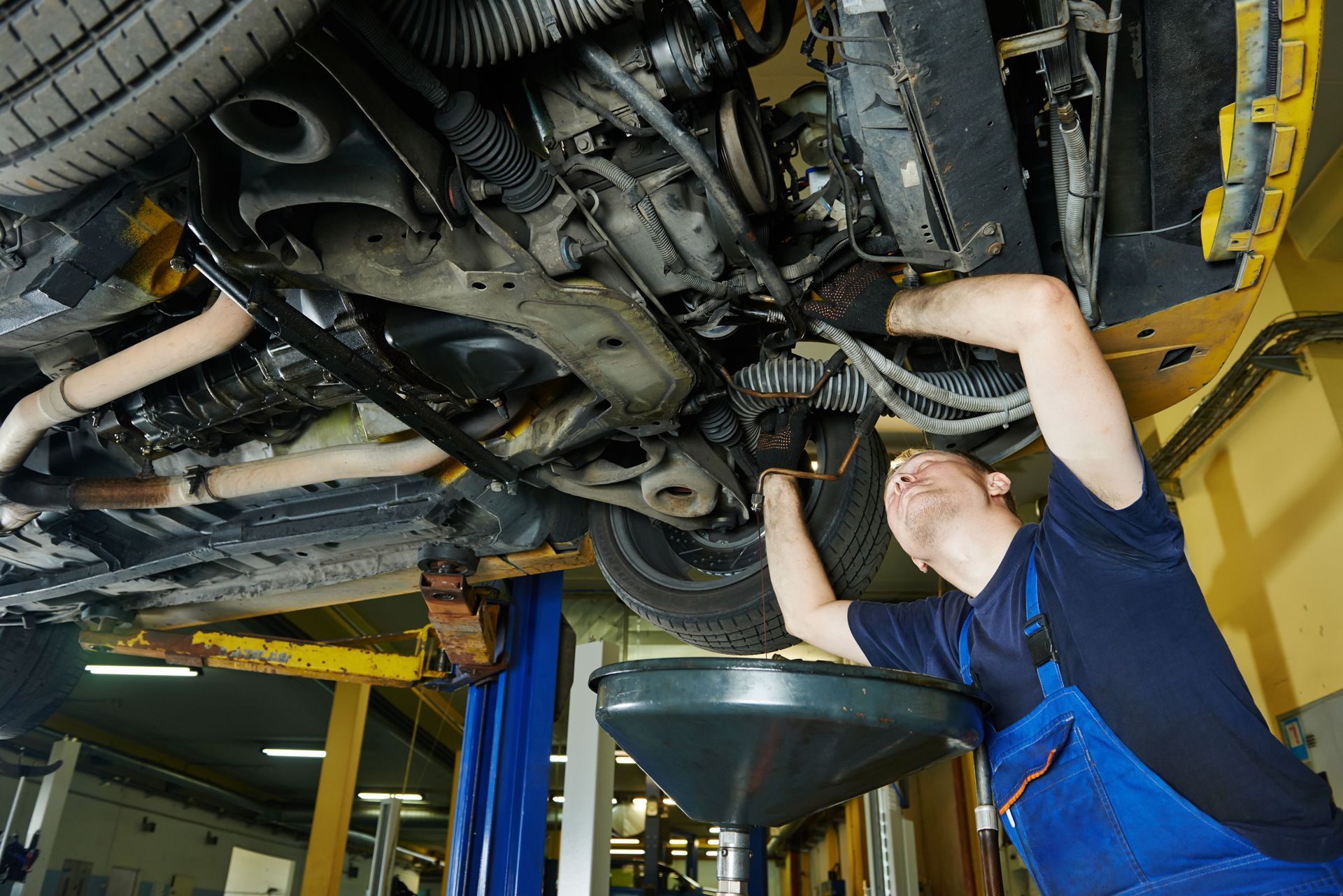If you own or manage diesel trucks, keeping them on the road longer not only improves your return on investment but also reduces costly downtime and diesel repair bills. Proper maintenance and smart habits can significantly extend the life of your diesel truck. Let's take a look at a few essential tips to help you avoid major breakdowns and maximize uptime. Whether you’re running one rig or managing a fleet, these diesel repair strategies will keep your vehicles rolling reliably and efficiently!
1. Stick to a Rigorous Preventive Maintenance Schedule
One of the most powerful ways to extend your diesel truck’s lifespan is to follow a structured preventive maintenance plan. Regularly changing engine oil, filters, coolant, and transmission fluid at manufacturer‑recommended intervals prevents wear and tear and helps avoid costly engine failures. In addition, inspecting belts, hoses, brakes, and suspension components during those routine checks keeps small problems from snowballing. Investing in preventive maintenance is the cornerstone of smart diesel truck ownership.
Preventive maintenance also helps you schedule service during planned downtimes rather than reacting to emergency breakdowns on the road. When maintenance is predictable, you can reduce disruptions, lower towing costs, and improve overall fleet reliability. It also gives your diesel repair technician the chance to catch early warning signs—like unusual fluid levels or minor leaks—before they lead to expensive part replacements or full system failures. Staying ahead of the curve not only protects your truck but also boosts your bottom line.
A strong preventive maintenance routine also supports warranty compliance and resale value. Many manufacturer warranties require proof of regular service to remain valid, and detailed maintenance records can make your truck far more appealing to potential buyers when it’s time to sell or trade in. Buyers are more likely to invest in a well-documented vehicle that’s been consistently maintained by a trusted diesel repair professional, giving you better returns and a stronger reputation in the marketplace.
2. Use High‑Quality Fluids and Genuine Parts
Using OEM‑approved or high‑quality aftermarket diesel engine oil, coolant, and transmission fluid ensures optimal lubrication and cooling. Substandard or off‑spec fluids may burn off additives prematurely or allow sludge build‑up, shortening engine life. Likewise, genuine parts like fuel filters, turbochargers, and injectors perform better under stress and last longer. Opting for premium supplies leads to fewer breakdowns and less frequent diesel repair interventions.
Cutting corners with fluids or parts might save a little money upfront, but it often leads to much higher repair bills down the line. For example, using low-grade engine oil can result in poor viscosity under extreme temperatures, putting critical engine components at risk. The same goes for off-brand filters that may not trap contaminants as effectively. When your truck runs on high-quality products designed for its specific demands, you reduce wear, improve fuel efficiency, and extend the intervals between major diesel repair needs.
3. Monitor and Address Fault Codes Promptly
Modern diesel trucks are loaded with electronic control modules (ECMs) that monitor hundreds of systems. When the check‑engine light or fault codes arise, don’t ignore them. Even minor codes can flag developing issues—like a faulty sensor or early turbo failure—that, if unchecked, snowball into major mechanical problems. Prompt diagnostics and corrective action via your trusted diesel repair shop can prevent breakdowns and extend engine life.
Delaying diagnostics when a warning light appears can also compromise emissions compliance and fuel efficiency. Many fault codes affect systems like the EGR valve, DPF, or DEF system, which are vital to clean operation. Ignoring these warnings might not only lead to costly diesel repair but can also trigger de-rate modes or system shutdowns that sideline your truck entirely. Quick attention to diagnostics keeps your vehicle running smoothly and avoids unplanned downtime.
4. Prioritize Fuel System Maintenance
Water contamination or dirty diesel fuel can cause injectors to clog, prematurely wear fuel pumps, and reduce engine efficiency. Regularly drain water separators, replace fuel filters on schedule, and use clean, high‑quality diesel fuel. Installing final‑mile filter systems for particularly harsh environments further protects injectors. A well-maintained fuel system reduces wear, improves performance, and reduces the frequency of diesel repair work.
Diesel fuel systems operate under extremely high pressure, which means even small particles of dirt or debris can cause significant wear to precision components like injectors and fuel rails. Over time, buildup from poor-quality fuel or neglected filters can reduce fuel atomization, leading to poor combustion, reduced power, and increased emissions. Prioritizing fuel cleanliness and regularly inspecting lines and injectors during diesel repair appointments helps maintain consistent performance and prevents costly system overhauls.
5. Avoid Prolonged Idling and Overheating
Excessive engine idling burns fuel inefficiently, increases engine wear, and can lead to ash build‑up in the diesel particulate filter (DPF). Likewise, operating with coolant levels too low or a malfunctioning thermostat risks overheating and internal damage. Train drivers to avoid unnecessary idling and ensure the cooling system—including radiator, thermostat, and fans—is inspected during routine diesel repair visits.
Modern diesel engines are built with tighter tolerances and emissions systems that don't tolerate extreme heat or prolonged low-RPM operation well. Idling for long stretches can also cause incomplete combustion, which leads to carbon buildup on valves and pistons. Over time, this buildup restricts airflow and reduces engine efficiency. Encouraging proper shutdown procedures and installing idle reduction technologies—like automatic shutdown timers—can help protect vital components and reduce the likelihood of future diesel repair needs.
6. Proper Operation and Inspection
Drivers play a critical role in truck longevity. It's essential to perform basic pre‑trip and post‑trip inspections—checking fluid levels, watching for leaks, listening for unusual noises, and noting warning lights. Instruct them on best practices such as warm‑up procedures in cold weather, gradual throttle use, and proper shifting under load. Driver awareness reduces the risk of small issues becoming big ones.
A knowledgeable driver can also provide valuable feedback to the diesel repair team that helps them address problems faster. If a driver notices irregular shifting, sluggish acceleration, or odd exhaust smells, reporting these signs early can prevent a breakdown or more severe engine damage. Consistent understanding of your vehicle not only boosts safety and performance but also fosters a shared responsibility for keeping the truck in top condition, making it easier to maintain long-term reliability.
7. Keep Accurate Records and Track Downtime Costs
Detailed service logs—including dates, mileage, parts replaced, and issues observed—help technicians spot recurring patterns and plan major overhauls smartly. Downtime isn’t just inconvenient—it’s expensive. According to Mechanics Hub, fleet downtime can cost over $850 per day per out‑of‑service truck. A well‑documented maintenance history enables you to act proactively, minimize downtime, and reduce diesel repair emergencies.
Accurate records also make it easier to assess the true cost of ownership. By tracking repair frequency, parts longevity, and downtime trends, you can identify underperforming vehicles or components and make informed decisions about replacements or upgrades. Plus, well-organized documentation streamlines communication with your diesel repair provider, ensuring faster diagnostics and more efficient service when repairs are needed.
Extending the life of your diesel truck comes down to smart, proactive choices. From preventive maintenance and high‑quality fluids to prompt diagnostics and careful record‑keeping, these strategies keep your fleet running longer, safer, and more cost‑effectively. Minimizing unscheduled repairs is not just good practice—it’s smart business. If you’re looking for reliable diesel repair support, the experienced technicians at Diesel Geeks are here to help you maintain peak performance and uptime. Trust our team to keep your fleet working harder, longer. You can get started with us today by reaching out for a free same-day estimate on your next maintenance appointment!









Share On: